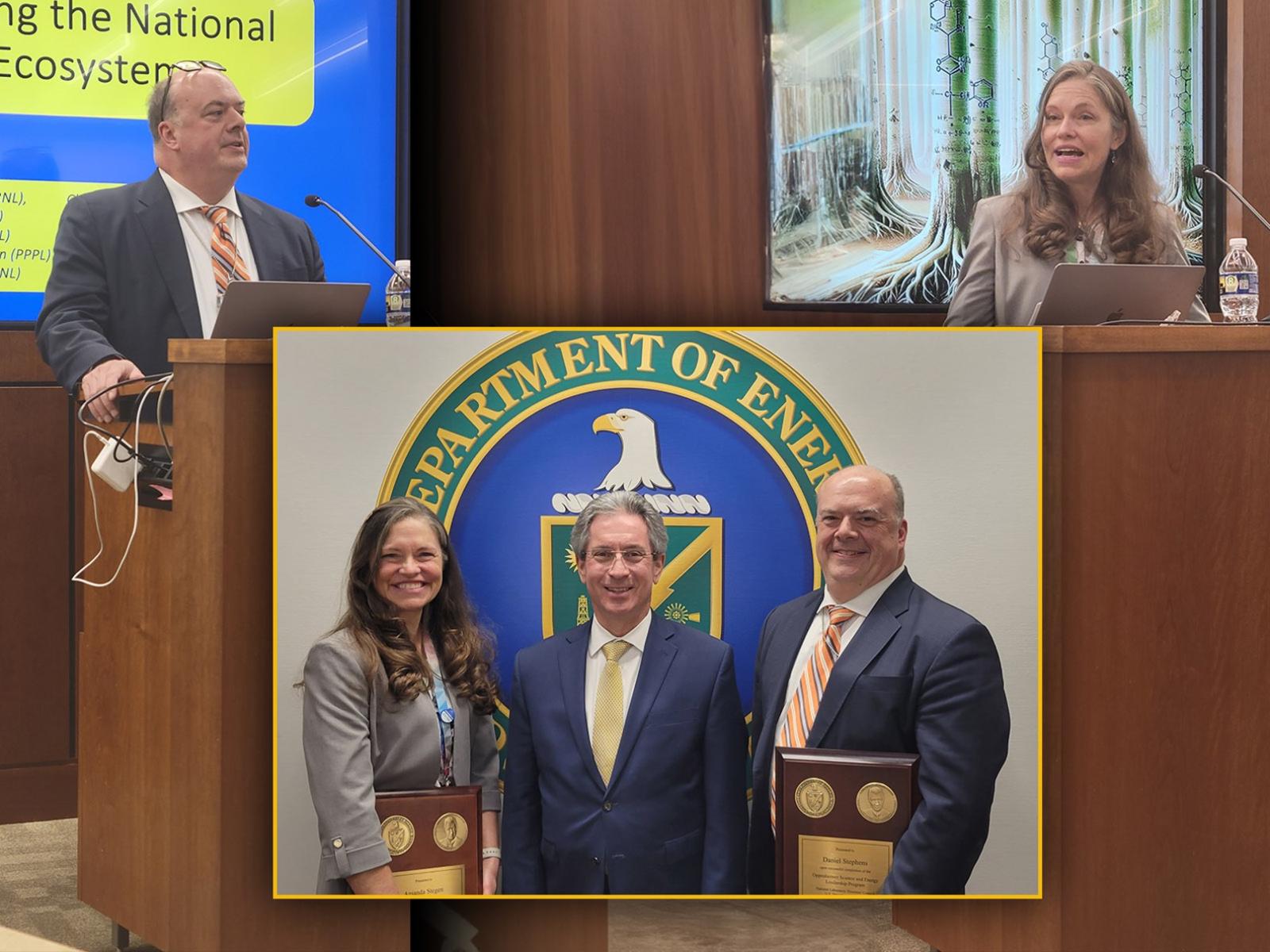Two PNNL Managers Complete Distinguished Yearlong Leadership Program

Daniel Stephens (top left) and Amanda Stegen (top right) presenting at the capstone event of the Oppenheimer Science and Energy Leadership Program. PNNL Director Steve Ashby (bottom center) was among the audience in the capstone event and joined Stegen and Stephens for a celebratory photo.
In December, two Pacific Northwest National Laboratory (PNNL) managers joined the ranks of Department of Energy (DOE) Oppenheimer Science and Energy Leadership Program (OSELP) alumni at an event in Washington, D.C., marking the end of a yearlong immersive experience visiting the 17 national laboratories and considering challenges facing DOE. Chief Operating Officer of the Physical and Computational Sciences Directorate Amanda Stegen and Director of the Nuclear Nonproliferation and Security Sector within the National Security Directorate Daniel Stephens were members of the latest cohort (Cohort 6) to complete the immersive OSELP fellowship.
OSELP is the namesake of J. Robert Oppenheimer, the Los Alamos Laboratory director during the Manhattan Project. Oppenheimer is considered the founding father of the DOE national laboratory system and his leadership exemplifies the goal of science serving society. OSELP seeks to identify and develop exceptional early- and mid-career scientists, engineers, and operations staff who can materially advance DOE missions.
Stegen expressed her appreciation for being involved in OSELP, stating, “The chance to visit all the national laboratories significantly enhanced my comprehension of the wide range of capabilities the national laboratory complex can bring to bear to tackle critical national and global issues.”
Stephens cited the opportunity to interact with leadership at the national laboratories: “I valued hearing the diversity of approaches to a number of challenges facing the labs. Seeing the different management styles helped me reflect on my own experience at PNNL.”
Besides the visits to the national laboratories, the other component of the fellowship is the development of think-pieces that tackle major organizational, policy, scientific, and other challenges within DOE’s mission areas. The think-pieces are presented to DOE and the National Laboratory Directors Council during a capstone event.
Stegen moderated a panel discussion in which Cohort 6 fellows proposed use cases for how the OSELP alumni could be leveraged in the future. The use cases included performing strategic peer reviews in new/expanded mission areas and providing support during crisis or disruptive events.
Stephens moderated a group that proposed a pilot for quarterly OSELP-like workshops held at national laboratories that would highlight other laboratories through a presentation or virtual visit. Each meeting would focus on a DOE mission and how the laboratories “visited” support that mission. “The goal is to raise awareness of staff members about the national laboratories and how the staff members fit into the DOE ecosystem,” said Stephens.
PNNL has two representatives in OSELP Cohort 7, Facilities and Infrastructure Operations Division Director Joe Cruz and Chief Communications Officer Amanda Schoch. Cruz and Schoch began their OSELP activities in January.
Published: February 8, 2024